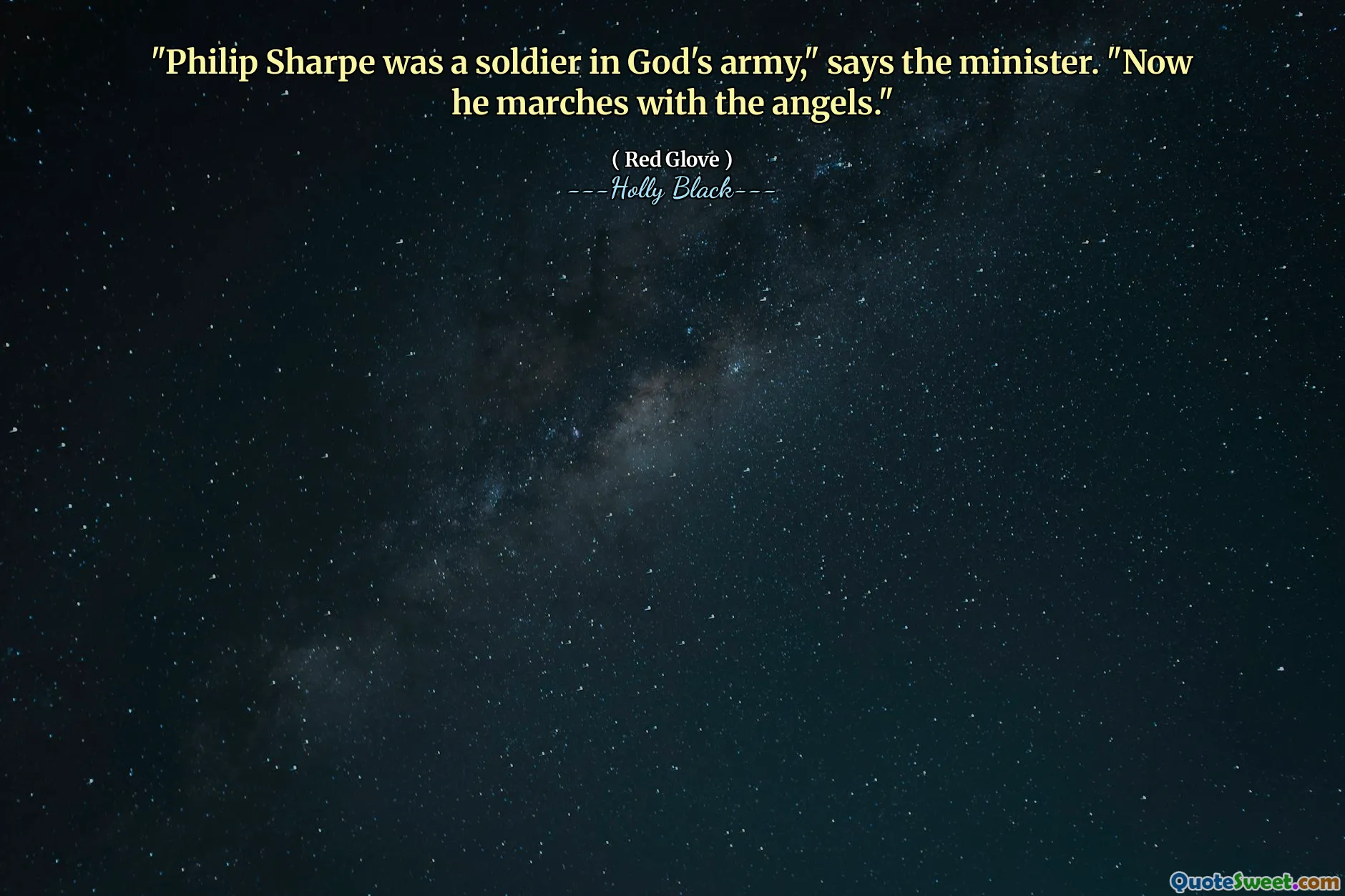
"Philip Sharpe was a soldier in God's army," says the minister. "Now he marches with the angels."
This quote beautifully encapsulates the poetic and spiritual imagery often employed to honor the lives and sacrifices of those who have passed, particularly soldiers. The metaphor of being a "soldier in God's army" evokes a sense of purpose and divine mission — suggesting that Philip Sharpe's life was dedicated to a cause larger than himself, possibly infused with religious or moral conviction. The transition to "marches with the angels" gently symbolizes his passage from earthly duty to eternal peace, portraying death not as an end but as a continuation of a noble journey in a celestial realm.
The quote resonates deeply when reflecting on how society views the lives of soldiers. They are often seen as protectors not only of their country but, metaphorically, as participants in a broader cosmic battle between good and evil. By framing Philip Sharpe's service in such spiritual terms, the minister elevates his earthly role to a sacred calling, offering solace and honor to those he left behind. It reminds us that legacies are not confined to memory alone but are perpetuated through the values and faith the individuals embody.
Furthermore, this statement touches upon themes of faith, valor, mortality, and transcendence. It acknowledges pain and loss without dwelling in sorrow, instead directing attention toward hope and the assurance of a peaceful afterlife. Such affirmations can be profound sources of comfort for grieving communities, reinforcing beliefs that lives of sacrifice are recognized and celebrated in the spiritual dimension.
In summary, the quote from 'Red Glove' here weaves together imagery of conflict, faith, and transcendence, creating a narrative that is as emotionally moving as it is reflective, inviting readers to contemplate the delicate bridge between life, death, and eternal purpose.







